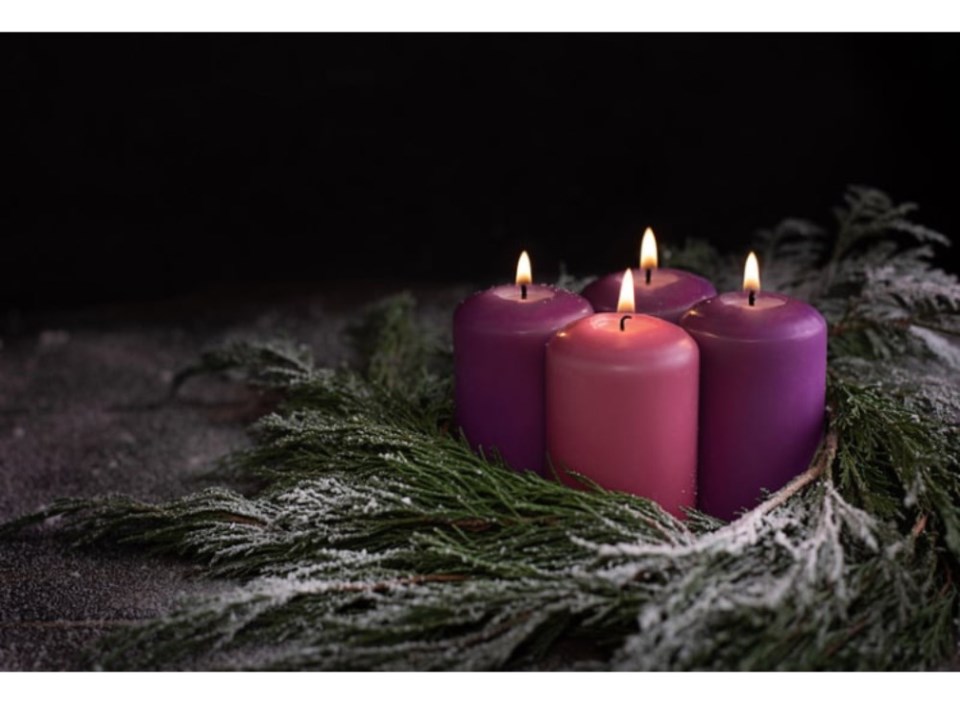These days even non-religious people are talking about the end times. Whether it is climate change or seismic activity in politics, there is a palpable anxiety on the street. There are also those cheering on the breakdown of institutions, assuming rejecting science and smashing government agencies will usher in a better future. Despite the seeming embrace of dystopic language, we are ill equipped to deal with such upheaval. We are no longer tethered by common narratives that bind us together. There are fewer of us turning to the same news sites, meeting together at civic events, or participating in common social institutions, including churches and other religious institutions. Without meeting together, there is less opportunity to bridge the divides among us. I do not have all the answers. None of us do, but building a society together is something that requires everyone’s active participation. It requires checking in with our neighbours, knowing their names and their struggles.
For Christians, one tradition that offers resilience in the midst of uncertain times, is the apocalyptic season of Advent. Spanning the four Sundays prior to Christmas, Advent is a time of waiting. Regardless of what some Christians would have us believe, apocalypse isn’t a longing for destruction. Instead it is a longing for divine justice and love for all neighbours in times of upheaval. One way we mark the time of waiting is lighting an additional candle on the Advent wreath each Sunday. Some people have Advent wreaths at home. Together we are counting down the days not to Christmas, but for Christ’s promised return, ushering in the mutual flourishing for all of creation. During this waiting we keep watch, not out of fear, but out of hope. The coming of Jesus is about turning upside down a world of inequality. Creator does not desire for a few people to get ahead while others are left behind, no matter how many B-movies Kirk Cameron produces with this plot line. Together we can reclaim apocalyptic storytelling that yearns for peace and justice.
Advent also reminds us we are not alone. It a relief to hear it is not up to us individually to save the world. Divine love lifts that burden from our shoulders, freeing us to commit to acts of love among our neighbours. When we are anxious, we are unable to act. When we are confident, courage abounds. And so during this time of waiting, we listen. We listen to prophetic stories and voices in our midst that give us courage. We listen to one another, seeking mutual understanding. We listen to silence, a disruption of the noise demanding our attention. Taking time to listen, who knows what we might hear? Who knows how we might be inspired to serve?
One concrete example about serving others is the Shelbourne Community Kitchen which is located in the church building where I serve as pastor. The Kitchen is a separate organization, but we are partners supporting their work of feeding neighbours. As they complete a significant renovation project they’ll be even better equipped, preparing meals to feed people who are hungry and teaching them food prep skills in a new commercial kitchen. I am heartened every time I see neighbours visiting the Kitchen, including Indigenous people, settlers, and newcomers to Greater Victoria. In a time of waiting this Advent, it is a reminder that we are building a more just world. Together we are feeding one neighbour at a time. Meeting people and hearing their stories transforms fear about end times to breaking bread and building community together.
Lyndon Sayers is co-pastor at Lutheran Church of the Cross and co-host of the CFUV podcast “Let’s Talk Faith and Justice."
You can read more articles on our interfaith blog, Spiritually Speaking at https://www.timescolonist.com/blogs/spiritually-speaking
* This article was published in the print edition of the Times Colonist on Saturday, November 30th 2024



